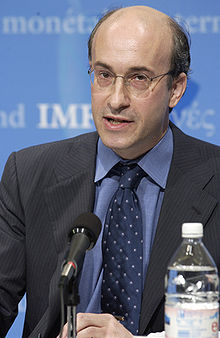New projects are announced with investors of doubtful credibility
Once upon a time in 2010, the then Iraqi Minister of Oil Hussain Shahristani — otherwise known as the “Teacher”, from recent exposes — was invited to the parliament to speak about the petroleum product shortages in the country. The refineries were not meeting domestic demand due to a 70 per cent utilisation rate and the country was importing close to a 100,000 barrels a day of light petroleum products.
Shahristani left the parliament with flying colours after announcing the Ministry is working to build four refineries at the same time. The plan came about in such a way that no one quite knew on what basis the sites were selected or the feasibility studies behind them.
Feasibility studies and front-end engineering and design were done later at a cost of $226 million without ever looking critically at the locations selected by the Ministry. Failing to find willing private investors, the Ministry decided in January 2014 to sign a contract with engineering contractors to build the 140,000 barrels a day Karbala refinery financed from its own budget.
This refinery was planned in the late 1980s in a different location between two major power stations north of Hilla province and where millions were spent on preparing the site and installing facilities. The move to Karbala remains unexplained.
The contract was signed for $6.5 billion, much higher than comparative projects in the region such as Al Zour in Kuwait and the Yanbu and Jubail refineries in Saudi Arabia where the investment costs per daily barrel refined averages about $24,000 while for Karbala it stands at more than $46,000. Completion is expected in 2018 or 2019 and luckily some construction is visible on site.
In 2013, the government signed a memorandum in the presence of the Prime Minister Nouri Al Maliki and the Minister of Oil Kareem Luaibi, (more recently known as “Mister M”), to build the 150,000 barrels a day Maissan refinery with a Swiss company by the name of Satarem, which undertook to invest $6.5 billion, again much higher than what the refinery should cost.
The warnings were immediate that Satarem is a questionable company. Its chairman, who owns a satellite channel in Lebanon, said on television that it was the first time he was meeting the oil minister, which implied the limited role, if any, of the ministry in this deal.
Satarem turned out to be just a postal address in Switzerland. Muthanna Kubba, an Iraqi living in the same city where the company is registered, conducted a thorough investigation and informed Iraq accordingly about its status, activity and inexperience in refining. Other analysts chipped in and parliamentarians, including the Parliament Integrity Commission, were equally apprehensive to the extent that some thought the deal is scuttled.
However, the Maissan International Refinery Company (MIRC) was established by the investor but could show no evidence of a financing bank or a construction contract.
There were allegations that the refinery site may have been turned over to MIRC officially even though it became known than the CEO of Satarem, Jérome Friler, had been convicted for previous business dealings.
But bad ideas die hard and the Ministry of Oil decided last February to go ahead with the project with this legally bankrupt company and a Chinese entity by the name of Wahan. The only company I could find by that name (Wahan Global Enterprises Limited) was incorporated in 2004 and dissolved by deregistration in 2011. If this is the case, then we are in another phase of carelessness or utter misconduct by the Ministry.
The Ministry of Oil insists on concluding this shady deal with a company that has no background in refining nor has it concluded its own feasibility study of the project. The consequence will be a further damage to Iraq’s refining programme sooner or later.
Ahmad Mousa Jiad of “Iraq Business News” said: “The Ministry should not take advantage of the fiscal and political crisis in the country to conclude a scandalous deal under the pretext of foreign investor and by using a deceptive non-economic argument by saying this refinery will not cost the government anything.” For this, he was attacked personally — and unjustly — by one Ministry “consultant”.
Many Iraqi experts are finding it extremely difficult to have their opinion heard, but for the love of the country and industry cannot give up. At a time when corruption allegations are hitting two previous ministers, it will be only a matter of time for more to be disclosed, especially about this shady deal.
But what is $6.5 billion between friends when reports suggest that some $400 billion of Iraq money may have been lost through corruption? And what can people like me say when Iraq last year imported “ornamental flora” from Iran to the tune of $175 million?
Source: Gulf News, Published: 12:04 April 10, 2016
http://gulfnews.com/business/analysis/the-farce-that-goes-for-refinery-projects-in-iraq-1.1707584






Comment here